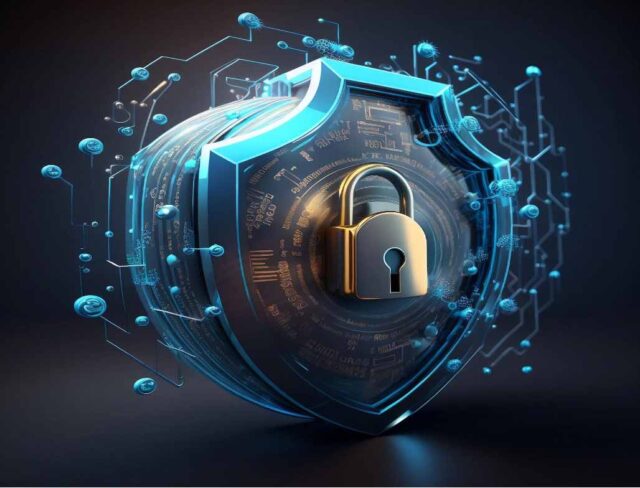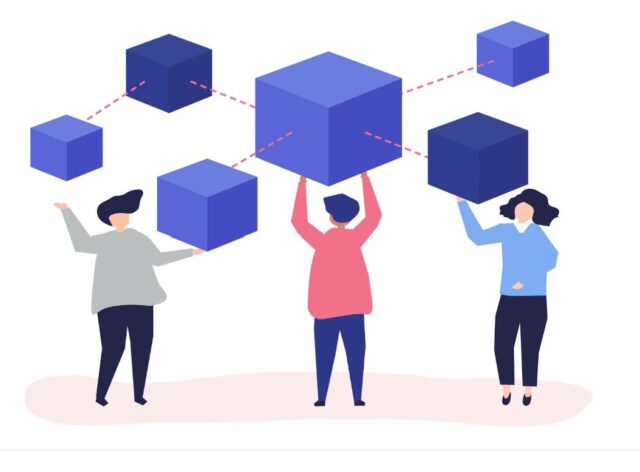The digital world is quickly evolving, and we are witnessing a significant merging between domain name systems (DNS) and blockchain technology. This joining could have an impact on internet identity, so it is essential to understand why blockchain is important in this case.
Understanding DNS and Blockchain
Do you know how blockchain and DNS interact and why it’s important?
Blockchain and DNS are two technologies that have revolutionized the internet. DNS is what allows us to locate websites and services on the internet by translating names into numbers that computers can read. Blockchain allows us to keep our data and transactions secure by employing a computer network. They can work together to ensure the internet is reliable, transparent, and safe. This is critical to our internet identity in terms of who we are and what we do online.
Blockchain’s Impact on Cybersecurity
Cybersecurity is also something that blockchain technology makes a huge difference in, which refers to the way we keep ourselves safe from hackers and other threats. With the help of blockchain, we can distribute and utilize digital assets and communications without any centralized authority. This makes it difficult for any person to manipulate or steal our data.
Blockchain also uses math and cryptography to ensure that our data is reliable, or, in other words, authentic, without any alterations. This implies that we can rely on the fact that our data is what it claims to be and that no one has tampered with it. This makes blockchain one of the main technologies that ensures the safety and soundness of our internet identity.

The Rise of Blockchain Identifiers
Have you ever thought of the way in which blockchain can transform our online representation through avatars?
Blockchain is the technology that allows us to generate and use names that are not identical, but each of them is connected to our wallet addresses. These names are called ‘blockchain identifiers’, which can be considered identity badges that show who we actually are.
As examples, projects such as ENS and Unstoppable Domains allow a personalized web experience with less compromise on safety parameters. You can have your own personal place on the net where you reign as head honcho and walk down whichever road suits you, allowing you to create your own online persona that others can neither alter nor control.
Nevertheless, blockchain identifiers are not immaculate. They do have some issues, such as the name collision and its complexity, that make it a hard-to-use tool.
But also, blockchain identifiers have a number of benefits that cannot be overlooked, like being decentralized and censorship-resistant. They guarantee that we are more safe and private, allowing us to make informed choices on how to regain control over our digital identity. They can be like the digital safe, where only we have a key to get inside.
Therefore, blockchain identifiers are a means of our freedom from constraints in the old system. It is why we need to continue perfecting and developing them in order to innovate towards better-quality products.
Synergy between DNS and Blockchain
Think of DNS and blockchain as two friends who help each other and make the internet a better place. They have some amazing skills that we can benefit from. Let’s see what they can do:
- Decentralization: Think of it as a group project where everyone contributes. By storing DNS information on the blockchain, there’s no bossy central authority dictating the show. This means less risk of meddling or unfair play by outside forces.
- Security: Picture a fortress protected by unbreakable locks. With cryptographic signatures and consensus rules, the blockchain ensures that DNS information stays safe and unaltered. Say goodbye to sneaky attacks trying to mess with your online experience.
- Innovation: Imagine a playground where you can create any game you want. That’s what blockchain-powered DNS brings to the table. Handshake domains, for example, let you pick any name without pesky rules or middlemen, sparking a wave of creativity on the web.
While projects like Handshake are already paving the way, there’s still some homework to do. Challenges like fitting everyone in, making sure everyone plays nice, and getting everyone on board need tackling. DNS on Blockchain is like a young superhero in training—promising but still learning the ropes. But given time, it could become a staple of the internet we know and love.

With these two technologies joining forces, we can solve problems better, improve efficiency, and also see new opportunities for the future. In this process of reaching out to a more decentralized and resilient internet, cooperation as well as innovation will play key roles. Through the use of blockchain technology, we can build a utopian future where internet identity is secured for everyone.
To Wrap It Up
So, what have we learned today? Two innovative technologies, DNS and blockchain, have transformed our internet consumption. They can make online connectivity safer, more open, and more equitable. This is relevant to our online identity, i.e., how we represent ourselves and what activities we engage in via the internet.
Yet blockchain and DNS are not all alike. They have a few gray areas, such as name collisions or complexity, for example, that we should resolve. Through blockchain and DNS, we can build a world that will ensure a safe internet identity that is likewise accessible and reliable.











